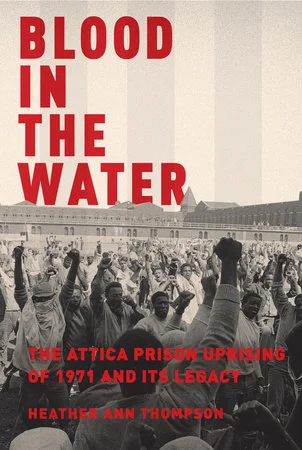Using the past to challenge our present
The simplest way to describe the difference between journalists and historians is that one deals with the present and one with the past. At the same time, it is clear, when practiced at their highest levels, these professions share much, including rigorous sourcing and great storytelling. In fact, many of the most important writers of our time have been both journalists and historians. See David Halberstam, Bruce Catton, Ron Chernow, or Stanley Karnow.
At a time when facts apparently are not as stubborn as John Adams allegedly thought them, it's important to reflect on the intersection of journalism and history. It is sometimes said of presidents that history, with its long lens and benefit of informed reflection, eventually will render a just verdict on their performance. But what good does that do us today? History is being made as you read this and much of it is being influenced by the work of journalists, pseudo-journalists and even algorithms.
This occurred to me after reading Heather Ann Thompson's "Blood in the Water," the Pulitzer Prize-winning book on the bloody 1971 Attica prison uprising, and viewing "The Vietnam War," Ken Burns' and Lynn Novick's intelligent and remarkably watchable recounting of a failed American war.
Thompson's book was ten years in the making because New York State has done its best to throw a cloak of secrecy over the truth about Attica. Persistence, instincts and a little luck led Thompson to what really happened in the prison 46 years ago (read Thompson's introduction on how she uncovered the facts). The truth she reveals is devastating for nearly every government official involved with Attica.
At Attica, 1,300 prisoners took 39 corrections officers and prison employees hostage to protest what they believed to be substandard living conditions at the maximum security prison in rural western New York. A corrections officer was killed in the prisoner takeover, putting everyone on edge during the subsequent negotiations, including heavily armed State Troopers staging and stewing outside the prison walls.
When the talks broke down, Gov. Nelson Rockefeller ordered the Troopers, National Guardsmen, and corrections officers to retake the prison. Thirty-three prisoners and nine hostages (not including the guard killed in the prisoner riot) died in the haphazard and barbaric storming -- all from gunshot wounds. The only people with guns in the prison yard that day were with law enforcement.
Thompson is a renowned historian but her investigative skills shine here. The book is meticulously sourced and factually framed. She does not let precision get in the way of an unrelenting and engrossing narrative. She sympathizes with the prisoners but she lets facts guide her work.
You can't read this book and not be angered by how effectively Rockefeller and other state officials manipulated the investigation, the courts and the public to protect themselves. The prisoners were militants hell bent on revolution, they told the public. A state spokesman lied to the public after the storming, saying prisoners had cut the throats of hostages. Police and prosecutors hid evidence about subsequent torture and lack of medical treatment for the inmates. This dissembling and deception went on for decades.
Despite a medical examiner's report showing that the hostages were killed by gunfire, even residents of the village of Attica, saddened and shocked by the loss of husbands, brothers, and friends, continued to believe the state's story on the hostage deaths. A woman who lost two family members in the assault said, "the State Police did not kill those hostages."
Similarly, in "The Vietnam War," Episode 8, Burns and Novick focus on the 1970 shooting deaths of four unarmed students by Ohio National Guardsmen at Kent State University. The students, who were protesting the U.S. military "incursion" into Cambodia, were "the worst type of people that we harbor in America...worse than the 'Brown Shirts' and the communist elements," Ohio Gov. James Rhodes said the day before the shootings. After the shootings, President Nixon coldly said, "When dissent turns to violence, it invites tragedy." Again, the government's menacing characterizations of the protestors worked: a Gallup poll taken at the time found that most Americans thought the shootings were justified.
Thompson, Burns and Novick -- as journalists and historians -- have done a service for us. Researching and retelling the stories of two of the most divisive events in our country's history, they have helped build common understanding of the reality of who we are, what we have done and why. These hard lessons will make us better -- if we are willing to invest the time to learn them.
Of course, this led me to the present and attacks on journalists as enemies of the American people. Just last week, the president of the United States called on Congress to investigate journalists for reporting stories he did not like. That should send chills up your spine.
If you want to see and feel journalists and historians at work, read this book or watch this series. Americans should know what happened in Attica or at Kent State not only to render some form of justice for those who suffered or were wronged, but to learn that conspiracies and coverups do exist and can destroy peoples' lives if we are not vigilant.
Often, the most vigilant people in a democracy are journalists. They know and apply the lessons of history to their reporting today. They challenge those granted power and influence. This is how a democracy is supposed to work and why it is institutionalized in this nation's founding charter.
And by journalists I don't mean those involved in shouting matches on cable news, or looney conspiracists with a radio microphone or even propagandists with websites or printing presses. Unfortunately, many Americans do not separate these charlatans from real journalists, which is why we need a sustained media literacy effort, as wisely advocated by my friend Dick Martin.
So to answer my own question above, how do histories on Attica, Vietnam and other events help us today? By providing proof that those we trust with power are imperfect and that their words and actions need to be scrutinized, criticized and held to account. To me, this is the most patriotic action we can take.



